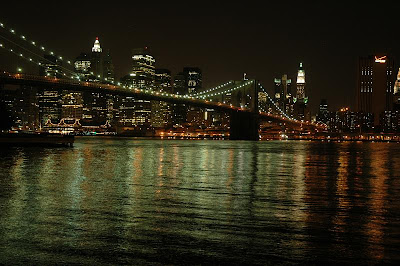
For anyone involved in a relationship,
Revolutionary Road might prove a somewhat uncomfortable ride; not for the caustic, bitter, spittle-laden fury contained in its simple plot but for the horrifying idea that any couple, once in love, could end up filled with such abject hatred and resentment towards each other.
Sam Mendes - director of the beautifully-shot Road To Perdition and the excellent, if overrated, American Beauty - directs his wife, Kate Winslet, and Leonardo DiCaprio in this adaptation of the highly regarded 1961 novel by
Richard Yates.
I have not read the book but have read many of his short stories and Yates certainly knows how to paint a bleak picture of impotent, stunted masculinity so I fully expected this film to weigh heavily with hostility and bile, replete with a downer ending.
I wasn't wrong.
While Todd Haynes tackled the social melodramas of 50s America in his fabulous tip of the cap to
Douglas Sirk, - Far From Heaven, in 2002 - Mendes is more interested in the behind-closed-doors minutiae of frustrated American suburbanites in 1955 with delusions of intellectual grandeur.
April (Winslet) and Frank (DiCaprio) were once idealistic young lovers with dreams of greatness and intellectual fulfillment. Now, they are pretty, bored drones who get by on the fumes of supposed superiority to their dullard surroundings.
The sad truth is that they are exactly what they hate and, truthfully, they know it. What follows is a couple intent on tearing the flesh from the bones of their marriage and exposing each other's failings and shortcomings in a manner so vicious it will leave nothing when it passes. They argue horribly, they both have pathetic extra-marital sex, they pretend everything is okay to their fawning neighbours and they harbour an immature idea to escape their myriad problems by fleeing to gay Paris...until April discovers she is pregnant, something that proves to be the key in determining the outcome of their marriage, their lives and this film.
Michael Shannon (pictured on the right) - in a tour-de-force cameo as the mentally-unhinged son of Kathy Bates' realtor, brimming with razor-sharp observations and dry wit - steals this film from the two fine actors headlining the poster and provides a kind of 'this-is-what-this-means' commentary for the key moments when the couple's lives are really unravelling.

His killer line is to Frank when he 'compliments' the preening failure's awareness saying: "Plenty of people are onto the emptiness, but it takes real guts to see the hopelessness."
The movie is big, shiny, wonderfully-shot and lit, and creates a different cinematic world that, despite a good script and great performances, leaves an emotional gap between the viewer and the film that is difficult to fill. TV's
Mad Men is blessed with labyrinthine plots that detail the feelings of a nation just out of the 50s and trying to deal with the social changes that are coming like a tidal wave but Revolutionary Road is firmly set in the mid-50s when the 50s ideal is the be-all and end-all.
There is no change on the horizon and the status quo is suffocating.
Unfortunately, the film itself creates a distance I imagine the novel did not. Without being inside the heads of these characters, having an internal monologue to grind out, in detail, the frustrations and anger that drive them to say the things they say, it becomes difficult to connect with the multiple fights which come thick and fast.
The director is also faced with the problem of cinematic deftness while attempting to emotionally connect with the viewer on a profound level over what could be perceived as staunchly middle-class whining and despite an effort that gets alot right, the epic self-absorption of the characters renders them and their problems slightly unrealistic and dismissible and, ultimately, the whole film falls short.
It's hard to identify with a hardship or desire you cannot grasp for the grandiosity of its presentation and relative indifference you feel towards the characters and the fault for this must lie with the director.






















